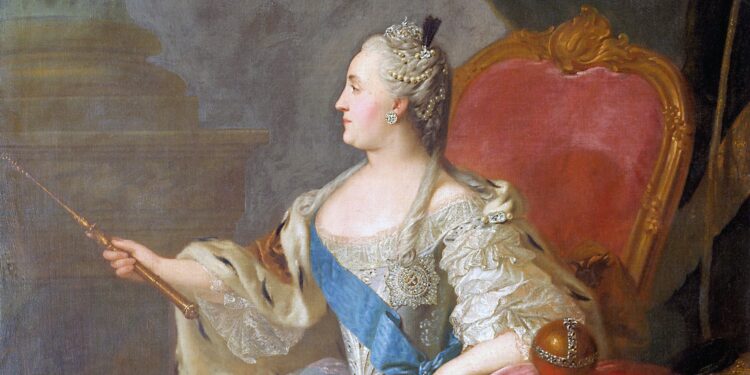Catherine II, better known as Catherine the Great, was a remarkable leader who left an indelible mark on the history of Russia. Born in Stettin, Prussia in 1729, she married the future Emperor Peter III of Russia in 1745 and ascended to the Russian throne after his assassination in 1762. Catherine’s reign, which lasted until her death in 1796, is widely regarded as a period of great progress and modernization for the Russian Empire.
One of Catherine’s most significant contributions was her commitment to promoting education and culture in Russia. Embracing the ideas of the Enlightenment, she established schools and universities, encouraging the study of art, literature, and science. Under her rule, the Hermitage Museum in St. Petersburg was founded, which still stands as one of the world’s greatest repositories of art and culture.
Additionally, Catherine pursued an expansionist foreign policy, leading Russia to become a major European power. Through a series of successful military campaigns, she expanded the empire’s territories, especially in Crimea and the Black Sea region. These victories solidified her reputation as a formidable and strategic leader.
Her rule was not without controversy, as she faced numerous challenges from within her court and dealt with multiple uprisings. The Pugachev Rebellion of 1773-1774, led by Cossack Emelian Pugachev, was one of the most significant threats to her reign. Although the rebellion was eventually crushed, it highlighted the discontent among the serfs and peasants, leading Catherine to tighten her control over the lower classes.
Catherine was also an advocate of legal reforms. She engaged in the codification of Russian laws, which resulted in the publication of the “Nakaz,” a legal code that sought to modernize and humanize the legal system. While the code was never fully implemented, it had a lasting impact on future Russian legal developments.
Throughout her reign, Catherine remained a progressive leader, seeking to improve the lives of her subjects. However, despite her attempts at reform, serfdom persisted, and the divide between the nobility and the common people continued to widen.
Catherine the Great’s legacy as an enlightened and influential ruler endures to this day. Her contributions to education, culture, and territorial expansion significantly shaped the course of Russian history. Despite the challenges she faced, she left a lasting mark on the empire she ruled and remains an iconic figure in Russian and world history.
newshub




Recent Comments